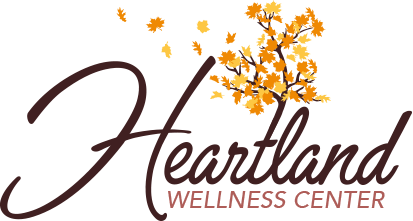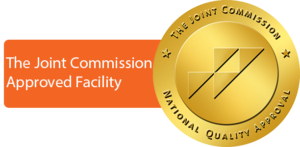Introduction
Anxiety is a common mental health condition that affects millions of individuals worldwide. It can manifest as excessive worry, restlessness, or a sense of impending doom. Heartland Wellness Center recognizes the importance of addressing anxiety from a holistic perspective, combining both traditional and alternative approaches to help individuals effectively manage their symptoms. In this blog, we will explore the nature of anxiety, its potential causes, common symptoms, and provide practical tips and strategies to cope with and alleviate anxiety.
Understanding Anxiety
Anxiety is a natural response to stress, but when it becomes persistent and interferes with daily life, it may indicate an anxiety disorder. Several factors contribute to the development of anxiety, including genetics, brain chemistry, environmental factors, and life experiences. Understanding the different types of anxiety disorders, such as generalized anxiety disorder (GAD), panic disorder, social anxiety disorder, and specific phobias, can help individuals recognize their symptoms and seek appropriate support. Anxiety can manifest physically, emotionally, and behaviorally. Common physical symptoms include rapid heartbeat, shortness of breath, muscle tension, and stomach discomfort. Emotional symptoms may include excessive worrying, irritability, and difficulty concentrating. Behavioral symptoms may manifest as avoidance of triggering situations or compulsive behaviors.
Identifying Anxiety Triggers
Recognizing the triggers that exacerbate anxiety is crucial for effective management. Common triggers include high-pressure situations (e.g., public speaking or exams), certain environments (e.g., crowded places or confined spaces), social interactions, or specific thoughts and memories. Heartland Wellness Center emphasizes the importance of self-awareness and encourages individuals to identify their personal triggers. Journaling, therapy sessions, or mindfulness practices can help in this process, allowing individuals to gain insight into their anxiety triggers and develop targeted coping strategies. It’s important to note that triggers can vary greatly from person to person, and what causes anxiety for one individual may not affect another in the same way.
Coping Strategies for Anxiety
- Deep Breathing and Relaxation Techniques: Deep breathing exercises, progressive muscle relaxation, or guided imagery can help calm the mind and body during anxious episodes. These techniques promote relaxation and help individuals regain a sense of control over their anxiety. By focusing on slow, deep breaths and consciously relaxing tense muscles, individuals can activate the body’s relaxation response, which counteracts the stress response associated with anxiety.
- Regular Exercise: Physical activity releases endorphins, which are natural mood elevators. Engaging in regular exercise not only improves overall physical health but also helps reduce anxiety symptoms by promoting relaxation and stress reduction. Aim for at least 30 minutes of moderate-intensity exercise most days of the week. Activities such as walking, jogging, swimming, or yoga can be particularly beneficial for managing anxiety.
- Cognitive Behavioral Therapy (CBT): CBT is a widely used therapy for anxiety disorders. It focuses on identifying and challenging negative thought patterns and replacing them with more positive and realistic ones. Through CBT, individuals can learn to recognize and modify distorted thinking patterns that contribute to anxiety. Heartland Wellness Center offers CBT sessions to provide individuals with effective tools to manage anxiety in their daily lives.
- Mindfulness and Meditation: Practicing mindfulness and meditation techniques can help individuals develop a greater sense of presence and reduce anxiety by focusing attention on the present moment. Mindfulness involves observing thoughts and emotions without judgment, allowing individuals to cultivate a sense of acceptance and non-reactivity. Heartland Wellness Center offers mindfulness-based programs to support individuals in cultivating a calm and centered state of mind. Regular practice can help individuals become more aware of their anxiety triggers and respond to them in a more balanced and calm manner.
- Lifestyle Modifications: Making certain lifestyle changes can significantly impact anxiety levels.
These include:
a. Prioritizing Sleep: Getting adequate restful sleep is crucial for overall well-being, including mental health. Establishing a consistent sleep routine, creating a conducive sleep environment, and practicing relaxation techniques before bed can promote better sleep quality.
b. Balanced Diet: Nutrition plays a role in supporting mental health. Consuming a well-balanced diet rich in fruits, vegetables, whole grains, lean proteins, and healthy fats can provide the necessary nutrients to support brain function and mood stability.
c. Limiting Stimulants: Excessive intake of stimulants such as caffeine and alcohol can exacerbate anxiety symptoms. Moderating or avoiding these substances can help manage anxiety levels more effectively.
d. Stress Management: Incorporating stress-management techniques into daily life is essential for anxiety management. Engaging in activities like hobbies, spending time in nature, practicing mindfulness, or participating in relaxation exercises can reduce stress levels and promote emotional well-being.
- Support Network: Building a strong support network is essential in managing anxiety. Heartland Wellness Center encourages individuals to seek support from trusted friends, family members, or support groups. Sharing experiences and emotions with others who can provide understanding and encouragement can be immensely helpful in managing anxiety. Consider joining local or online support groups focused on anxiety or seeking therapy to explore your thoughts and feelings in a safe and non-judgmental environment.
- Self-Care Practices: Prioritizing self-care is crucial for overall mental health and anxiety management. Engage in activities that bring joy, relaxation, and fulfillment. This could include taking breaks, practicing self-compassion, engaging in hobbies, pursuing creative outlets, or pampering oneself with soothing activities like taking baths or practicing aromatherapy.
- Seeking Professional Help: If anxiety symptoms persist or significantly interfere with daily life, seeking professional help is crucial. Mental health professionals, such as therapists or counselors, can provide specialized guidance and evidence-based treatments tailored to individual needs. Heartland Wellness Center offers a range of therapeutic services to support individuals on their journey to managing anxiety.
Final Thoughts
Managing anxiety is a multifaceted process that requires a holistic approach. By understanding the nature of anxiety, identifying triggers, and implementing practical strategies, individuals can effectively manage their symptoms and enhance their overall well-being. Heartland Wellness Center is committed to providing comprehensive support to individuals struggling with anxiety. Remember that everyone’s journey is unique, and it may take time to find the most effective strategies that work for you. By implementing these tips and strategies, individuals can empower themselves to lead more fulfilling and anxiety-free lives.



